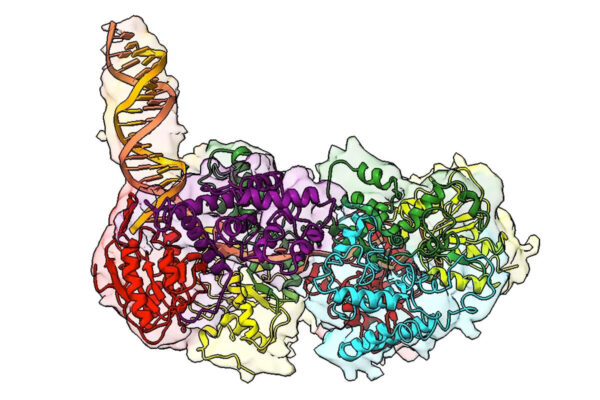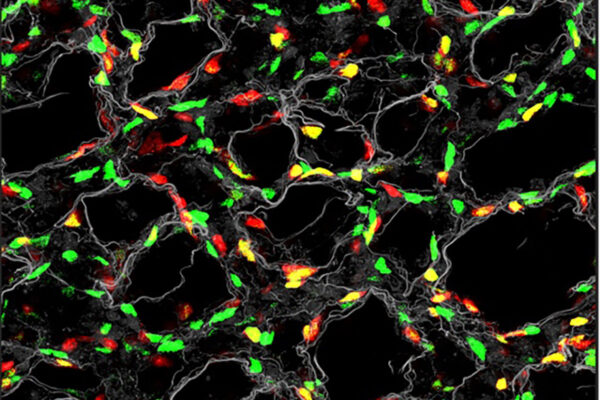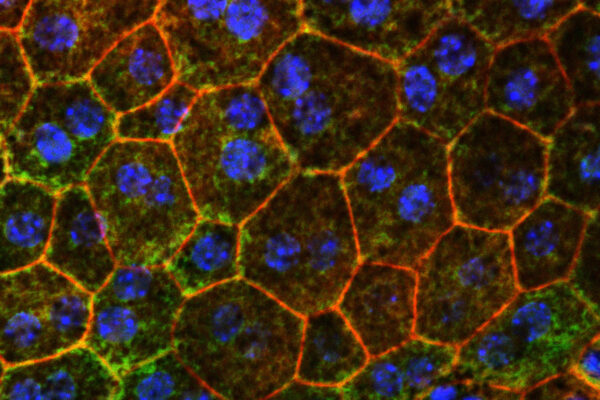Pediatrics names two new co-vice chairs
Ana Maria Arbeláez, MD, and Stephanie A. Fritz, MD, have been named co-vice chairs of clinical investigation in the Department of Pediatrics at WashU Medicine.
Key component to cell division unveiled in 3D
A new study from WashU Medicine researchers describes the structure of an important protein that unspools the DNA molecule so the DNA can be repaired. Interfering with the protein could prove useful in developing new therapeutics for tuberculosis or other diseases caused by organisms that rely on these proteins to repair their DNA.
Hepatitis C treatment is not reaching some at-risk populations
Two recent studies from researchers at WashU Medicine reveal that two vulnerable populations — children and recently pregnant women — face disparities in access to treatment for hepatitis C infection, putting them at risk of long-term health problems.
WashU molecular biologists identify multifunctional virus-sensing protein
WashU Medicine researchers led by Siyuan Ding identified an immune-system protein in human cells that has the unusual capacity to respond to both DNA and RNA from pathogens, which may have implications for developing vaccines.
Danforth Staff Council selects new members, leaders
The Danforth Staff Council at WashU has added 10 new members and elected its executive officers for the academic year.
WashU Medicine develops new postbaccalaureate training program
WashU Medicine faculty members received funding from the National Institutes of Health (NIH) to develop the Postbaccalaureate Research Education Program in Diabetes, Endocrinology and Metabolic Diseases, a two-year mentored research experience.
Early intervention changes trajectory for depressed preschoolers
A specialized approach to treating childhood depression developed by WashU Medicine researchers leads to long-term remission and other benefits, according to a new study.
Ornitz receives NIH grant to study lung development
The National Institutes of Health (NIH) has awarded David M. Ornitz, MD, PhD, of WashU Medicine, $740,000 annually for four years to support research aimed at understanding respiratory complications associated with premature birth.
Strategy to prevent age-related macular degeneration identified
Fixing problems with cholesterol metabolism might help slow or prevent age-related macular degeneration, a leading cause of blindness in older adults, a new WashU Medicine study in mice has shown.
Harris selected for William T. Grant Scholar Class of 2030
Occupational therapy faculty member Kelly Harris, at WashU Medicine, will receive a $425,000 award to develop and test a technology-enabled care coordination service model to support Black youth with asthma.
View More Stories









